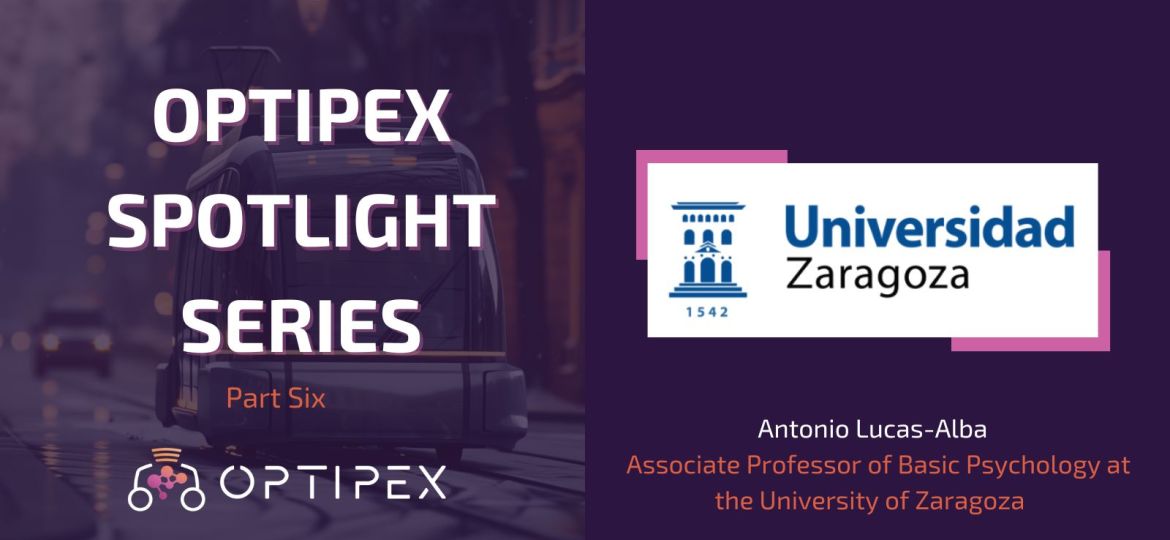
Welcome to the fourth edition of OptiPEx’s Spotlight Series! In this edition, we sit down with Antonio Lucas-Alba from the University of Zaragoza to explore his organization’s role in the OptiPEx project.
Thank you for speaking with us today. Could you start by introducing yourself?
My name is Antonio, I am an Associate Professor of Basic Psychology at the University of Zaragoza (Spain). I work at the Faculty of Social and Human Sciences on the Teruel campus.
Can you tell us about your general experience with public transport in your city?
The city of Zaragoza has a bus and tram network, and also public bicycle rental. My experience with the tram and bus networks is that they complement each other well and are quite efficient. Zaragoza’s tram line is well optimized: it connects the city’s two main university campuses and transports more than 100,000 travellers a day.
Based on this, why is a project like OptiPEx necessary?
OptiPEx aims to improve the user experience of public transport and enhance its capabilities in the near future. We know that private transportation (especially automobiles) pollutes a lot and is inefficient in terms of passenger/vehicle ratio. We also know that before we reach 2050, more than half of the world’s population will live in a city. It is clear that OptiPEx is a timely and necessary project.
What role does your organisation play in the OptiPEx project?
The University of Zaragoza represents the vision and approach of social and human sciences in the project. Although OptiPEx is a project with considerable scientific, technical and engineering weight, we must not forget that we are going to try to improve people’s public transportation, taking their experience and point of view as a starting point.
Our contribution is evident from the very beginning of the project: the co-creation process. Our concern is to propose procedures and research methods that allow us to account for key users, their needs, their expectations and their desires for the public transport of the future. These procedures must establish the component of gender equality in the samples, the presence of different types of users, respect for their opinions, the anonymous processing of data and respect for confidentiality, to name a few.
What will a successful contribution to the project look like for your organization?
There are several aspects that would define such a contribution. Without a doubt, the most important thing is to achieve satisfactory, safe and functional solutions that really contribute to greater use of public transport in the near future. We also hope to be able to train researchers in this field (for example, new doctors) and surpass the research quality criteria that involve publishing the results of our work in top-level research journals. For us it is also important, looking to the future, to consolidate professional relationships with researchers from other countries involved in this project.
What do you see as the biggest challenge for the project?
I believe that the greatest challenge is to successfully integrate three vectors: the expectations and desires for improvement of public transport users; the growing current technical knowledge and its development possibilities; due respect for the privacy of European citizens.
What does your organization hope to achieve between now and month 18 of the project?
At that time, halfway through the project, we will know what desires for improvement the different types of users have expressed with respect to the different dimensions of public transport and we will be weighing, designing and preparing different technical options that live up to their expectations.
Can you describe OptiPEx in three words?
Move forward together.